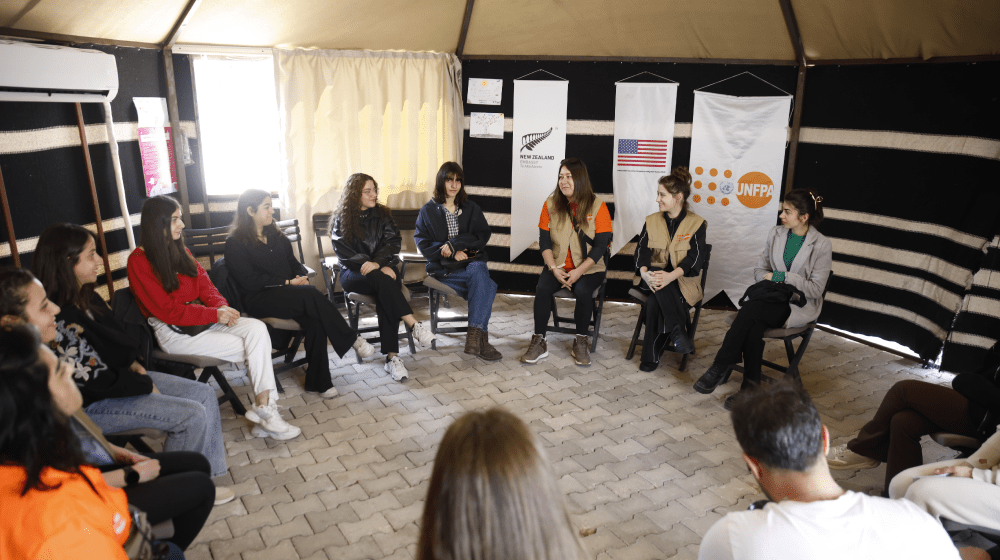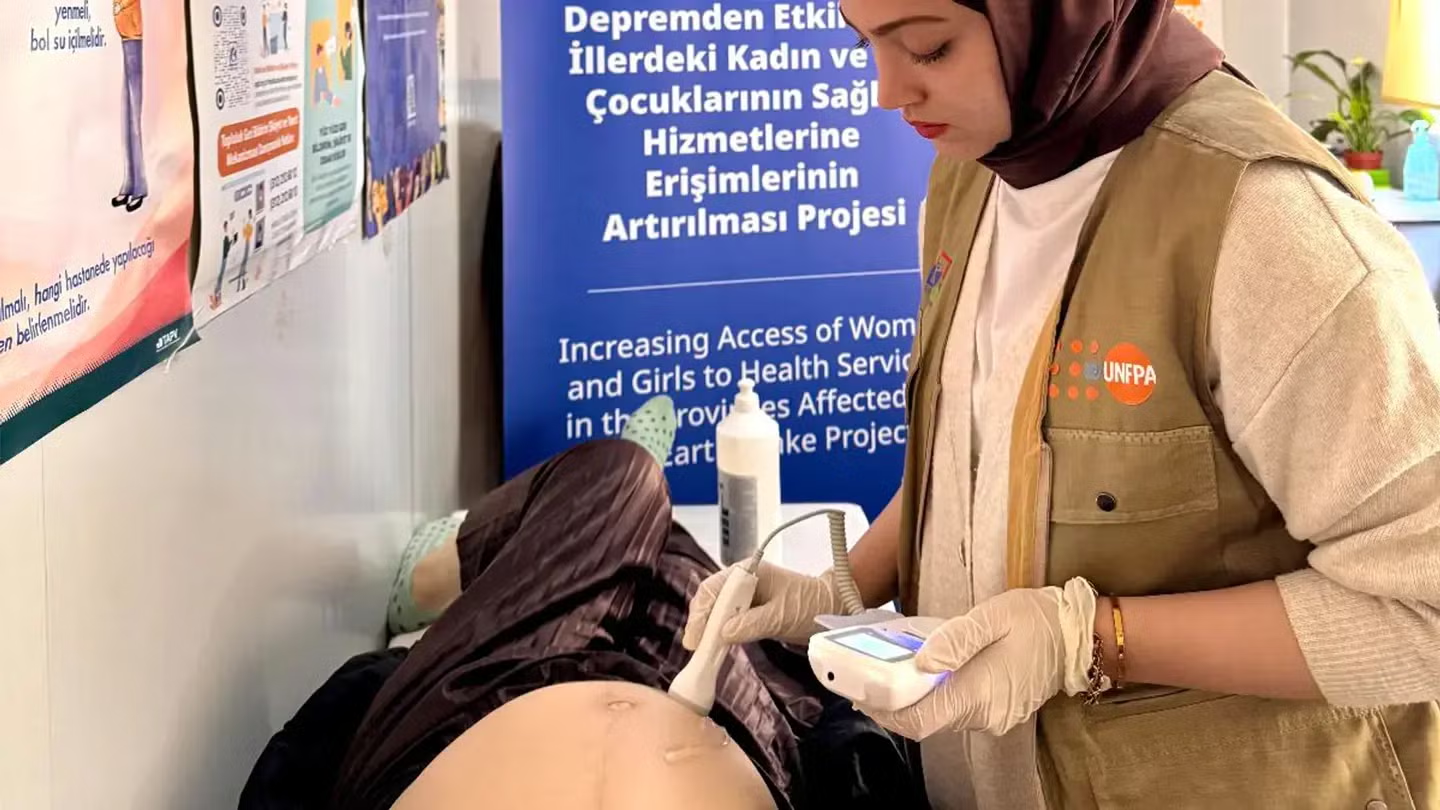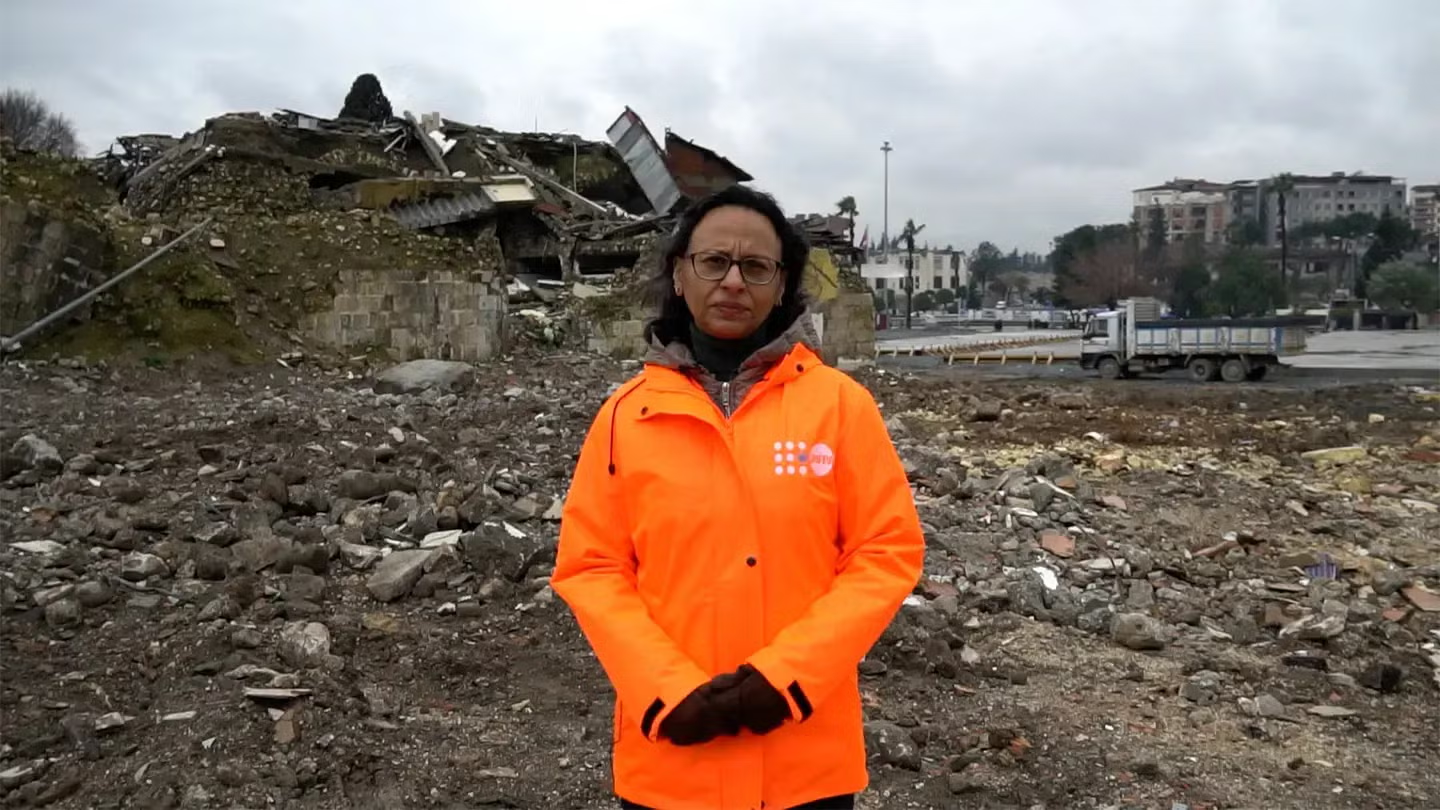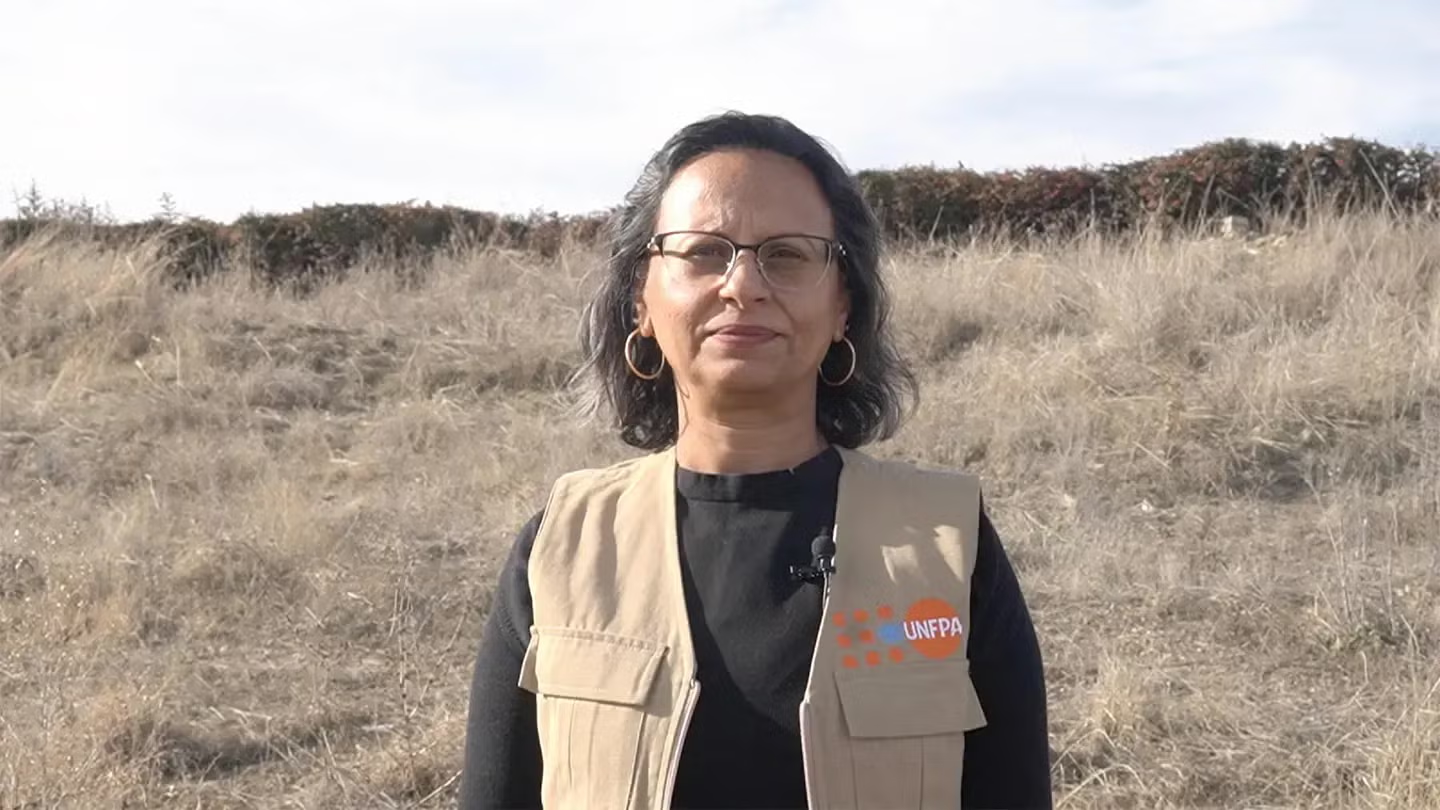More than 14 months have passed since the earthquakes on February 6, 2023. The pain is still raw, and the needs continue. Approximately 9.1 million people were directly affected by the earthquakes in 11 provinces, with over 3.6 million losing their homes. Currently, more than 700,000 people are living in temporary shelters, and the needs of about 1.1 million young people continue. United Nations Population Fund, UNFPA Türkiye provides health and protection services to support young people with the financial support of the U.S. Government and the New Zealand Embassy and with the collaboration of implementing partners. Let's hear the stories of some of these young people.
HATAY, TÜRKİYE - "More than a year has passed, but we still have a lot of needs. We just want to live a normal life like before the earthquake, in the land where we were born." These words belong to Damla, 27, who still lives in a tent in Samandağ, Hatay. Damla, whose house was severely damaged in the earthquake, continues to live with her family of six in challenging conditions, summarizing her needs and greatest expectations this way.
On February 6, 2023, devastating earthquakes shook 11 provinces across Türkiye, affecting approximately 9.1 million people directly. Women, young people, and girls are among the most vulnerable groups. The needs of over 1.1 million young people in the region continue. With the financial support of the US Government and the New Zealand Embassy and with the collaboration of implementing partners, UNFPA Türkiye provides sexual and reproductive health services as well as protection services including psychosocial support to young people in Hatay, which is the province most affected by the earthquake.
Damla’s story
During the earthquake, Damla and her family escaped barefoot from their heavily damaged house and began living in a tent, set up with their own resources, without any belongings. Damla explains that they still stay in the tent because they can’t fit into a single container as a family of six. The young woman, to mention that many of their needs still continue since the past year, particularly emphasizes economic difficulties. "Unemployment is the biggest problem. Many of us became unemployed, workplaces collapsed, and many employers lost their lives. Transportation difficulties persist, so we cannot move around easily," she says. Damla also expresses her concern for her younger sister, who is preparing for university: "I want her to get into the best places and study in a university. But in this economic situation, I don't know how we can afford her education or where to send her."
Damla meets our Youth Center through our mobile team in Samandağ, which operates in collaboration with Youth Approaches to Health Association (YAHA) with the financial support of the US Government and the New Zealand Embassy. "After the earthquake, I was very scared, I couldn't sleep, and I also experienced anger issues," says the young woman, explaining that she feels much better with the psychosocial support she received from the center and she has started working. She says "The psychologist's support was very beneficial to me; now I feel calmer and stronger". Expressing her desire to continue living in her hometown, Damla says, "Our only wish is for life to return to a bit more normal here."
Beyan’s story
Thousands of refugee families living in Hatay were also directly affected by the earthquake. Beyan was only 5 years old when she fled from Aleppo to Hatay with her family. Beyan says that when the earthquake hit at her 14, their lives were turned upside down. She describes the tragedy they experienced saying, "We lost our home, our belongings, everything in the earthquake. I lost my friends, my teachers. My father also lost his job, now he can't buy anything for us.". Beyan mentions that they are trying to continue their education, but they struggle to cover transportation expenses. "My siblings and I are successful students, but my father struggles to support our education; he can't afford to buy us boots, coats, or pay for our bus fare, but we want to study," she says.
We met Beyan through the mobile teams of the Women and Girls Safe Spaces, which operates in Reyhanlı, Hatay in collaboration with Association of Social Development and Aid Mobilization (with the U.S. Government's financial support. The young girl, to whom we provided a female dignity kit, also received psychosocial support by visiting the center. She says; "The items in the kit were very useful, especially the personal care products. After the earthquake, I felt very unhappy but after talking to the psychologist in the center, I realized I was not alone; I felt much safer, peaceful, and better."
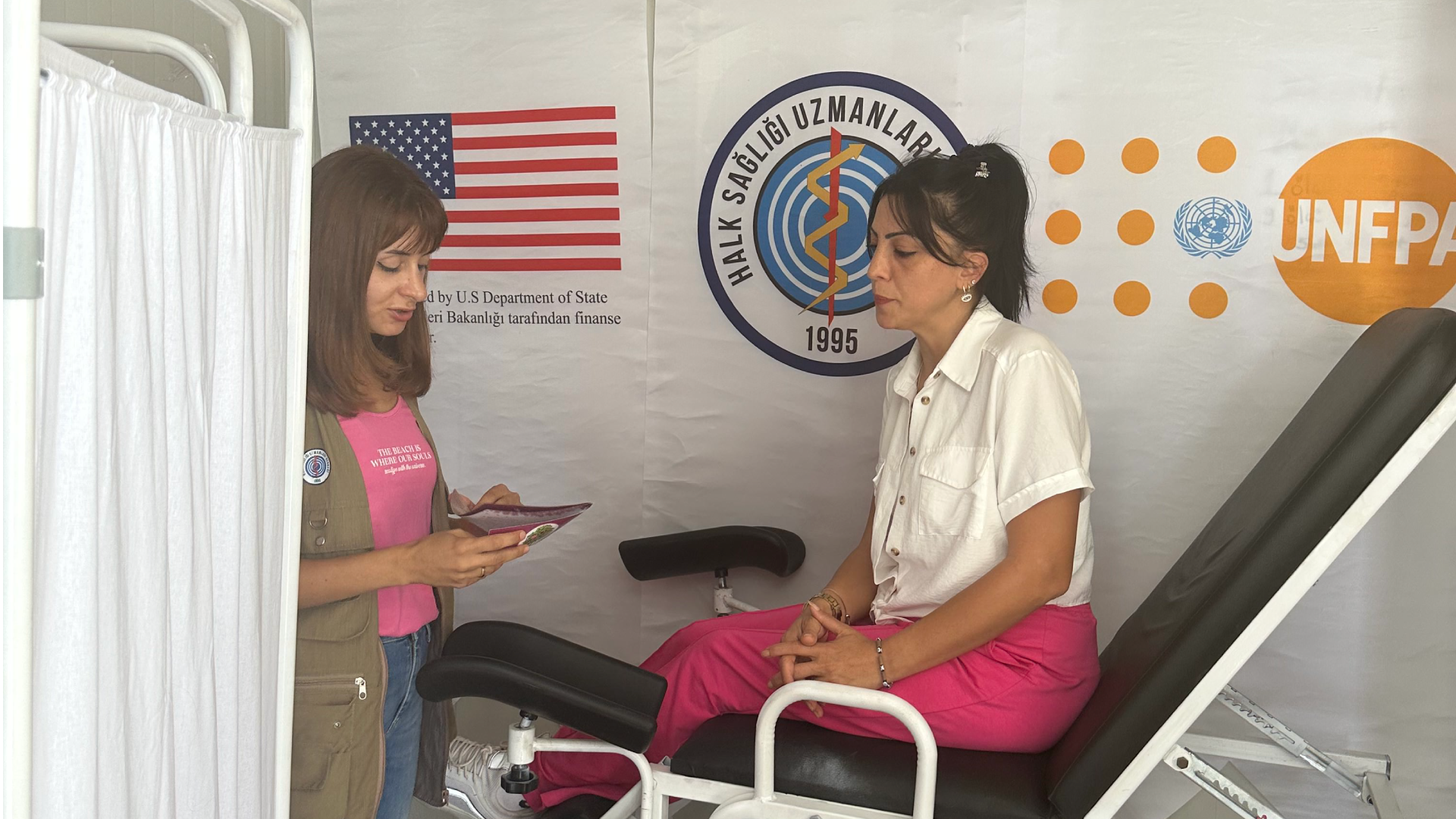
Fatma’s story
Fatma, a young mother at the age of 23, was caught in the earthquake at her home in Antakya with her two and three-year-old children. After the earthquake, Fatma stayed at a relative's house in Niğde for a while, then returned to her hometown Hatay, to stand on her own feet and she settled in a container city with her children. Fatma, who faced difficulties in accessing childcare and healthcare services, explains that during this period she reached significant support through UNFPA; "My husband and I were having problems, and I didn't want to get pregnant. I received support from the UNFPA center regarding contraceptive methods and had an intra-uterine device inserted."
Fatma, who received reproductive health and protection support from the UNFPA center, implemented in cooperation with the Association of Public Health Specialists (HASUDER) thanks to the financial support of the U.S. Government, says that it helped her a lot. She says that during the process of divorce with her husband, when she had to take care of her children while working, she felt for the first time that she was not alone, and she adds; "I will continue to stand strong to provide a good life for my children as much as I can."
UNFPA Türkiye continues to provide health and protection support for the most vulnerable groups, including women, young people, and girls in the earthquake-affected region. With the financial support of the U.S. Government and the New Zealand Embassy, sexual and reproductive health and protection services towards young people, including counseling, referrals, and psychosocial support, in Hatay, the province most affected by the earthquake.

